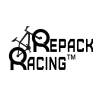How closely are NAD+ and circadian rhythm connected? Is there any evidence supporting taking NR only in the morning, or explicitly not taking it at night?
Normally we have a peak in NAD+ around noon, and second smaller one as we sleep.
Dr Brenner seems to think it isn't so important to supplement to match the nighttime peak and recommends to just take NR in the morning.
With a 8 hour delay to peak NAD+, that wouldn't quite match a noon peak (unless you get up early and take it at 4 am), but seems a reasonable compromise.
Of course you can always take a second dose in the evening, but I don't think there is any evidence whether or not that provides a benefit vs one dose a day.
None of this is actually clear. There have been quite a number of quite elegant studies showing connections between the NAD+ synthesis machinery and central regulators of circdian rhythms, but surprisingly, they have come to quite different findings as to how this impacts (or is driven by) circadian rhythms of NAD+ levels. I note with some head-scratching that in a 2013 paper, Joseph Bass' group found what appeared to be an anticipatory peak in NAD+ levels late in the light/rest phase (rodent "night:" rodents, like George Thorogood, party all night and sleep all day), with much lower levels throughout the dark/active period (rodent "day") (Fig. 1A). But in a previous 2009 report,(2) the same group showed peaks in the middles of both light/rest and dark/active periods, with the largest of all in the middle of the second dark/active period (Fig. 1D).
One difference between the two studies noted by the authors in personal correspondence is that in (2) the animals were fed ad libitum, whereas in the later study(1) the mice were fasted for 18 hours prior to each time point. The results in (2) might be driven by an endogenous clock-driven NAMPT rhythm,whereas (1) could reflect a peak driven by feeding/fasting driven changes in NAD+ synthesis or consumption. As they note, it would certainly be counterintuitive if a clock-driven NAD+ rhythm would oppose the food-driven one — especially, I would note, since a prolonged fast and feed is one of the fastest way to shift circadian rhythms (after changes in time zone, for instance). I personally wonder if the fact that it's an 18 hour fast doesn't mess up the clock by 6 hours, though of course neither man nor mouse would normally eat all of its food within a narrow 2 hour window every day (not that some don't as part of an intervention).
I also urge caution in this idea of an "8 hour delay" in peak NAD+: as discussed before, there's certainly a lot going on under the hood.
References
1: Peek CB, Affinati AH, Ramsey KM, Kuo HY, Yu W, Sena LA, Ilkayeva O, Marcheva B, Kobayashi Y, Omura C, Levine DC, Bacsik DJ, Gius D, Newgard CB, Goetzman E, Chandel NS, Denu JM, Mrksich M, Bass J. Circadian clock NAD+ cycle drives mitochondrial oxidative metabolism in mice. Science. 2013 Nov 1;342(6158):1243417. doi: 10.1126/science.1243417. Epub 2013 Sep 19. PubMed PMID: 24051248; PubMed Central PMCID: PMC3963134.
2: Ramsey KM, Yoshino J, Brace CS, Abrassart D, Kobayashi Y, Marcheva B, Hong HK, Chong JL, Buhr ED, Lee C, Takahashi JS, Imai S, Bass J. Circadian clock feedback cycle through NAMPT-mediated NAD+ biosynthesis. Science. 2009 May 1;324(5927):651-4. doi: 10.1126/science.1171641. Epub 2009 Mar 19. PubMed PMID: 19299583; PubMed Central PMCID: PMC2738420.































 This topic is locked
This topic is locked


















